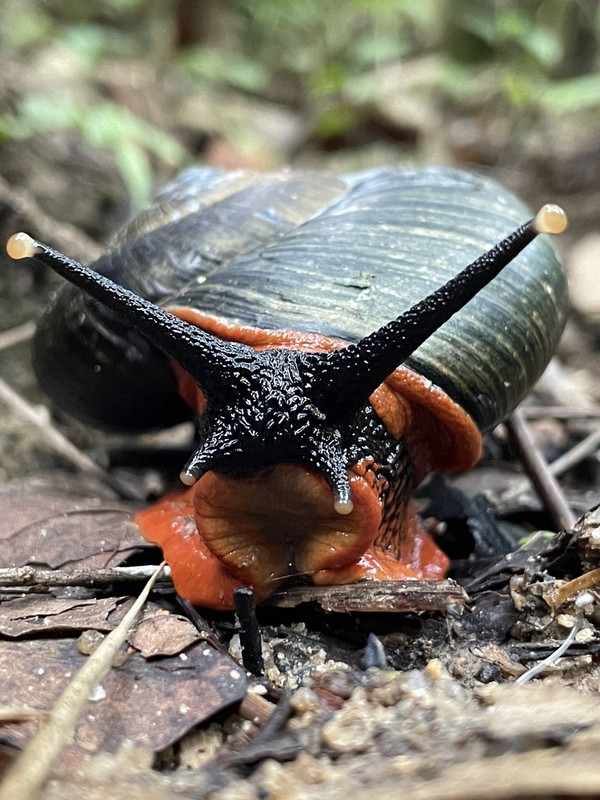Why are snails important?
₊˚⊹ 𓍊𓋼𓍊𓋼𓍊 ๑ï 𓍊𓋼𓍊𓋼𓍊 ⊹˚₊
Snails, and slugs, are an exceptionally important animal. Snails are heterotrophs, and can be herbivores, carnvivores, omnivores, and most importantly detrivitores, also known as decomposers. Detrivitores feed on decaying organic matter. Some other detrivitores are worms, millipedes, crabs, fungi, and many protozoa. This is an essential part of the food chain, as is it the final link and avoids a buildup of dead organic matter and feeds essential nutrients and elements back into the enviroment for soil formation to start the cycle again.
- I am currently finding specific numbers and research articles about percentages relating to snails and their roles as decomposers -
Snails are also an incredible example of diversity within a class, with over 40,000 species on land and n both salt and freshwater. Snails have devloped extroaridnary adaptations to survive their environments, and can even crawl across sharp objects unharmed.
(Finding this study)
Snails have been used in other research projects, including seeing if einjecting RNA from a snail that experienced an event would cause the recieving snail to react to a similar event. It was discovered that yes, snails can 'remember' something that never happened to them through RNA donation.
(Will cite research articles)
Snails are also fascinating in other scientific fields, such as Physics. Their mucus is a nonnewtonian fluid, meaning it does not follow Newton's laws of viscosity. It's viscosity is dependent on the stress applied to it. Snails are currently being used as inspiration to develop new forms of transportion due to this unique feature of their mucus and the fascinating way the foot moves to propel a snail forward.
Unfortunately, despite all we can learn from snails and their vital roles within our ecosystems, they are at risk. Studies have shown that humans are less likely to donate to or fund programs focussed on the preservation of invertebrates, reptiles and fish, and plant compared to those that focus on birds or our fellow mammals. Invertebrates alone make up an estimated 95% of all animals species, with the majority being insects.
Gastropods are already facing devastation within their class, especially as mentioned above in locations like Hawaii. This is majorly due to habitat destruction from various factors, though some species are also being threatened by being keep as exotic pets and poaching such as the Malaysian Fire Snail.
If you're interested in learning more about this issue, I suggest checking out the following resource!
- The Hawaiian Snail Conservation Fund
(The Bishop Museum has a wonderful Malacology Database)
- The World Wildlife Fund for Nature.
(Int. nonprofit focused on wildlife preservation)
₊˚⊹ 𓍊𓋼𓍊𓋼𓍊 ๑ï 𓍊𓋼𓍊𓋼𓍊 ⊹˚₊







